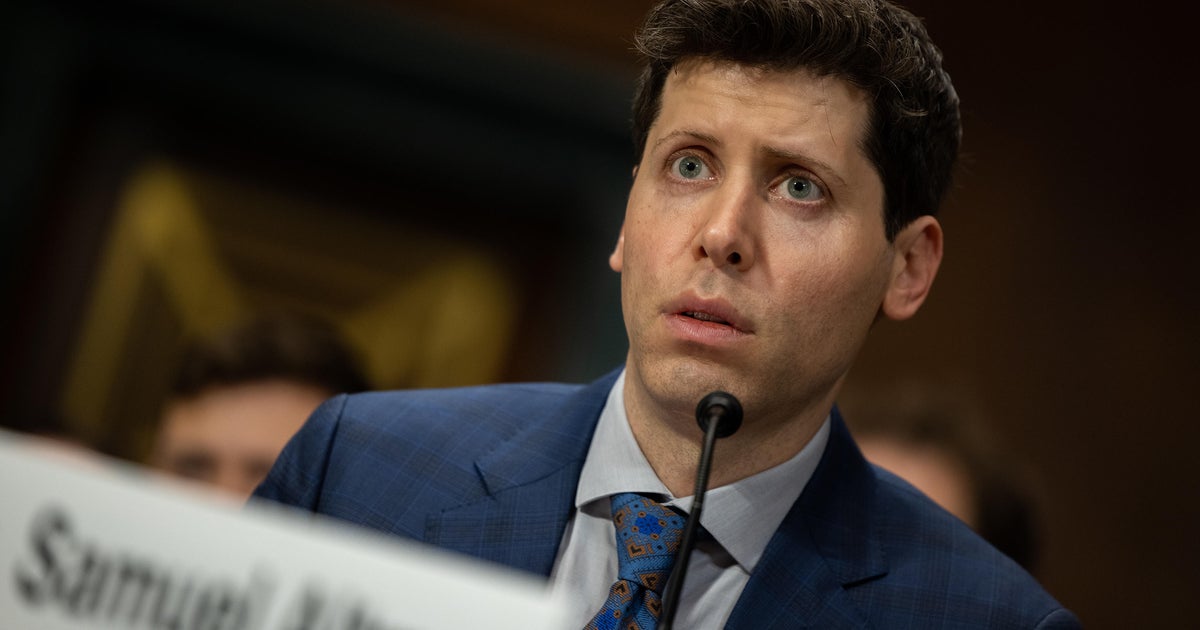AI🌈Tuesday Shifts: Altman to Microsoft, Meta Disbands Responsible AI, Amazon's Alexa Cuts, EU's AI Push
1. Sam Altman moves to Microsoft after OpenAI's CEO change
2. Meta disbands the Responsible AI unit
3. Amazon reduces Alexa jobs
4. France, Germany & Italy aim for unified EU AI rules
Stay tuned for deeper insights! ⚡
Greetings on this eventful day in the realm of AI! We're diving into the latest updates shaping the landscape. Firstly, the spotlight shines on Sam Altman's transition to Microsoft following the CEO shuffle at OpenAI. Secondly, Meta's dissolution of its Responsible AI unit has stirred conversations. Thirdly, Amazon's noteworthy reduction in Alexa-related job positions marks a significant move in the AI sphere. Lastly, the collaborative efforts of France, Germany, and Italy to establish unified AI regulations within the European Union hold promise for the industry's future. Keep a close eye on as we delve deeper into these pivotal developments!
1.Sam Altman's shift to Microsoft post-OpenAI's CEO shuffle
Microsoft's recent move to recruit Sam Altman, co-founder of OpenAI, following his unexpected ousting from the AI research company, sent shockwaves across the tech landscape. Altman, accompanied by co-founder Greg Brockman and a team from OpenAI, has been brought on board by Microsoft to spearhead a groundbreaking advanced AI research division.
In a statement on X, Microsoft CEO Satya Nadella expressed immense enthusiasm about Altman and the OpenAI team's integration, highlighting the creation of an innovative AI research wing. Meanwhile, Emmett Shear, formerly of Twitch, assumed the role of interim CEO at OpenAI, confirming his appointment on X.
The dismissal of Altman from OpenAI stirred controversy. While the company cited communication issues, Wall Street research suggested tensions might have stemmed from Altman's drive to develop more advanced AI products, causing communication discrepancies with the board. This series of events brought forth debates surrounding AI governance, Altman's leadership, and the future of OpenAI's pioneering developments.

2. Meta's dissolution of the Responsible AI division
Meta's decision to dissolve its Responsible AI (RAI) team, reported by The Information, marks a strategic shift, redirecting emphasis from overseeing responsible AI practices to intensifying efforts in generative artificial intelligence. Most RAI members are slated to join Meta’s generative AI unit, while others will contribute to the company’s AI infrastructure. Despite advocating for responsible AI development and listing foundational principles like accountability, transparency, and safety, Meta's restructuring underscores a shift in priorities. Jon Carvill, representing Meta, affirmed their ongoing commitment to responsible AI while acknowledging the redistribution of team members. However, concerns surface regarding this shift, especially considering previous reports of the RAI team's limited autonomy and arduous processes in effecting AI initiatives. This move aligns with global efforts towards AI regulation; governments worldwide are actively seeking frameworks to regulate AI development, evidenced by initiatives like the US government's AI safety rules and the European Union's pursuit of the AI Act.
/cdn.vox-cdn.com/uploads/chorus_asset/file/23951355/STK043_VRG_Illo_N_Barclay_1_Meta.jpg)
3. Amazon trims Alexa jobs, marking a shift in focus.
Amazon announced significant job cuts within its Alexa unit, affecting hundreds of employees. This decision, driven by evolving business priorities and a pronounced focus on generative artificial intelligence (AI), reflects the company's strategic shift. Daniel Rausch, VP of Alexa and Fire TV, cited these moves as aligning with customer-centric objectives and the optimization of resources. However, the exact number of job reductions wasn't disclosed.
These alterations reflect Amazon's broader restructuring across various divisions, which commenced with changes in its music and gaming sectors along with several human resources roles. The move towards generative AI, capable of creating software code and comprehensive text responses from short cues, emphasizes a future-oriented approach. Despite these changes, Amazon affirmed its continued commitment to its products and expressed optimism about Alexa's ongoing evolution, acknowledging the formidable task of integrating large language models into personal AI systems. The adjustments highlight the competitive landscape in voice assistant technology, where Amazon contends with rivals like Alphabet and Apple.
/cloudfront-us-east-2.images.arcpublishing.com/reuters/S2YN765IVNLODBYDA7XUEUFXHA.jpg)
4. France, Germany & Italy collaborate for unified EU AI regulations.
France, Germany, and Italy propose an EU AI regulation focusing on voluntary self-regulation for both large and small AI providers without immediate sanctions. This approach contrasts with the European Parliament's AI Act, emphasizing managing AI risks and promoting innovation. The proposal aims for binding rules upon company agreement and emphasizes an AI governance body to oversee model card definitions. The trio highlights concerns over trust in smaller European providers and advocates for a technology-neutral, application-based regulation. A potential European authority might monitor compliance, announcing any violations transparently. Negotiations between the European Commission, Parliament, and Council continue to shape the EU's AI regulatory landscape.

Today marks significant shifts in the AI landscape. These developments spark intrigue and raise important questions about AI's evolution and ethical considerations in technology. As the realm of artificial intelligence continues to evolve, stay engaged for deeper insights and further updates on these dynamic developments.









